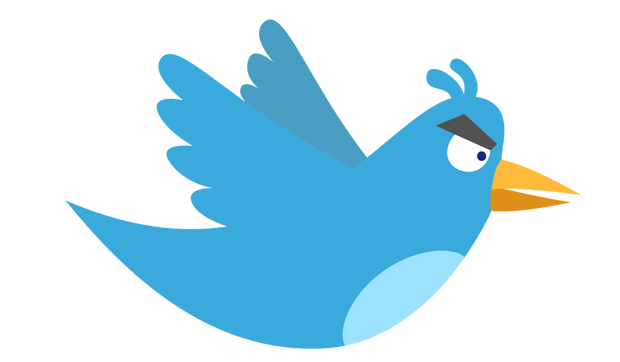Padraig Reidy: Life in paranoid Erdoganistan, where every day brings a new censorship story
Another week, another social media ban in Turkey. I email a friend. to ask what are people making of this latest gross violation of free speech. “Nothing much,” comes the reply. “Lots of jokes though.”
Such is life these days in Erdoganistan, where every day brings a new censorship story, greeted now with what my Turkish friend calls “the humour of desperation”.
The latest ban on social media came, perhaps, with slightly more justification than previous attempts. Pictures of a state prosecutor, Mehmet Selim Kiraz, were circulated by the hard-left Revolutionary People’s Liberation Front (DHKP-C), which had taken him hostage. Hours after the pictures were released, Kiraz was dead. A court ordered that the picture of the dead man in perhaps his final moments be removed from certain sites, but the image proliferated. Hence the blocking of social media on Monday.
It was a case, as Kaya Genc wrote, of “burning the quilt to get rid of the flea”.
This is not unusual in Turkey. Last spring, President Recep Tayyip Erdogan vowed to put a stop to social media after leaked wiretap recordings circulated on Twitter. Back in 2007, the whole of YouTube was blocked because of a video that insulted Kemal Ataturk, the founder of modern Turkey. That ban lasted three years, and even then-president Abdullah Gul raised his objections. During his presidency, in fact. Gul was never the most reliable friend of the authorities when it came to online censorship. Even during the 2014 ban, he tweeted “”The shutdown of an entire social platform is unacceptable. Besides, as I have said many times before, it is technically impossible to close down communication technologies like Twitter entirely. I hope this measure will not last long.”
In 2008, in one of my personal favourite incidents of online censorship, Richard Dawkins’ website was blocked because of a dispute with ridiculous, but powerful Turkish creationist Harun Yahya.
One has to admire Turks’ sanguinity in the face of such idiocy. It is not as if the web and social media are marginal in Turkish everyday life. As with any other country where half-decent smartphones are available, Turkish billboards and TV adverts are festooned with the familiar logos urging us to like, share, follow and the rest.
But Erdogan and the authorities appear convinced that the web is something that can be harnessed and controlled and without any detrimental effect.
Not that the Turkish president is alone in this belief. During the 2011 London riots, David Cameron famously suggested shutting down social media, to the delirious whooping of the likes of Iran’s Press TV and China’s Xinhua news agency: “Look,” they gleefully pointed out. “The British go on about free speech, and at the first sign of trouble, they want to shut down the internet.” It was rumoured that the Foreign Office had to intervene to point out how bad Cameron was making its diplomats’ human rights lectures look.
But there is a special kind of madness at play in Turkey’s multiple bans, a particular persistence. Ban it! Ban it again! Harder!
The Turkish state at times seems too much like a cranky uncle to be taken seriously, staring confusedly at the Face-book and worrying that somehow it’s a scam because they once heard about an email scam on the radio and now the computer is plotting against them.
But the problem is that Turkey isn’t your confused uncle. Turkey is a hugely important country. The attitude toward web censorship tells us a lot about Erdogan’s regime: it’s erratic, volatile, prone to paranoia, and increasingly suspicious of new things and the outside world. The president is prone to talking about his and Turkeys enemies, internal and external. The recent moves against the Gulen movement (including its newspaper Zaman) and refreshed hostility towards the PKK suggest Erdogan is up for a fight. Last month, he lumped the two movements together declaring that they were “engaged in a systematic campaign to attack Turkey’s resources and interests for years.” – sounding for all the world like Stanley Kubrick’s Brigadier General Jack D Ripper obsessing over plots to taint our precious bodily fluids.
Invoking the age-old Turkish paranoia of hidden power bases, Erdogan said: “We see that there are some groups who turn their backs on this people […] Two different structures that use similar resources have been attacking Turkey’s gains for the past 12 years. One uses arms while the other uses sneaky ways to infiltrate the state and exploit people’s emotions. Their aim is to stop Turkey from reaching its goals.”
Endless obsession over threats does not make for healthy government, let alone democracy. Some suggest that in his outspokeness and utter partiality, Erdogan is already overstepping the mark and creating a defacto US-style presidency – a stated aim.
Men with enemies lists are best avoided, and probably shouldn’t be allowed to be in charge of anything. Erdogan has all the appearance of being one of those men, and he’s been quite clear that the internet is on the list, saying after the 2013 Gezi protests that “Social media is the worst menace to society.”
This attitude is not a rational, but paranoia never is. For all that Turks can laugh at the president and the system, deep down they must worry.
This column was published on April 9, 2015 at indexoncensorship.org

